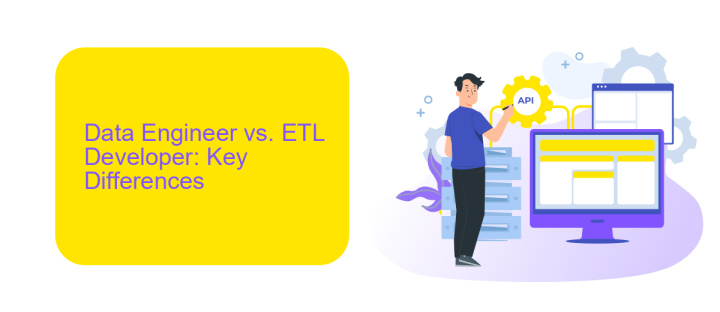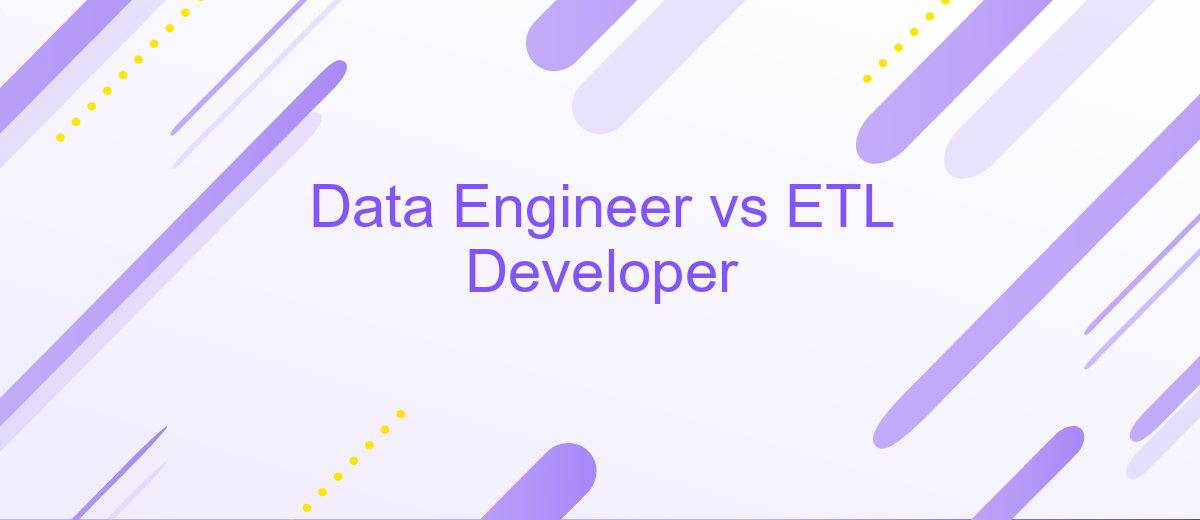Data Engineer vs ETL Developer
In the rapidly evolving landscape of data management, the roles of Data Engineer and ETL Developer often come under scrutiny. While both positions are crucial for handling data workflows, they serve distinct functions within an organization. This article delves into the key differences and similarities between Data Engineers and ETL Developers, helping you understand their unique contributions to data-driven environments.
Overview
Data Engineers and ETL Developers play crucial roles in managing and processing data within organizations. While their responsibilities may overlap, they focus on different aspects of the data pipeline. Data Engineers are responsible for designing, constructing, and maintaining scalable data architectures, ensuring data is accessible and reliable. ETL Developers, on the other hand, specialize in extracting, transforming, and loading data from various sources into a centralized data warehouse.
- Data Engineers design and build data pipelines and architectures.
- ETL Developers focus on data extraction, transformation, and loading processes.
- Both roles require proficiency in SQL, data modeling, and scripting languages.
While both roles are essential for effective data management, they serve different purposes within the data ecosystem. Tools like ApiX-Drive can facilitate the integration processes for both Data Engineers and ETL Developers by automating data transfers between various platforms, enhancing efficiency and accuracy. Understanding the unique contributions of each role helps organizations better allocate resources and optimize their data operations.
Data Engineer vs. ETL Developer: Key Differences

Data Engineers and ETL Developers play crucial roles in managing and processing data, but their responsibilities and skill sets differ. Data Engineers focus on designing, constructing, and maintaining scalable data architectures and pipelines. They work with big data technologies, such as Hadoop and Spark, and are proficient in programming languages like Python and Java. Their primary goal is to ensure the efficient flow and storage of data across various systems.
ETL Developers, on the other hand, specialize in Extract, Transform, Load (ETL) processes. They are responsible for extracting data from multiple sources, transforming it into a suitable format, and loading it into data warehouses or databases. ETL Developers often use tools like Apache NiFi, Talend, and Informatica. While both roles involve data integration, services like ApiX-Drive can simplify these processes by providing seamless integrations between various applications and data sources, enhancing the efficiency and accuracy of data workflows.
Responsibilities and Skills

Data Engineers and ETL Developers share overlapping responsibilities but also have distinct skill sets. Both roles are crucial in managing and transforming data, but their focus areas and tools often differ.
- Data Engineer Responsibilities: Designing, building, and maintaining data pipelines; ensuring data quality and integrity; working with large datasets; optimizing data storage and retrieval; collaborating with data scientists and analysts.
- ETL Developer Responsibilities: Extracting data from various sources; transforming data into a usable format; loading data into data warehouses; monitoring ETL processes; troubleshooting and optimizing ETL workflows.
- Data Engineer Skills: Proficiency in programming languages like Python and SQL; experience with big data tools like Hadoop and Spark; knowledge of data warehousing solutions like Redshift or BigQuery; understanding of cloud platforms like AWS or Azure.
- ETL Developer Skills: Expertise in ETL tools like Informatica or Talend; strong SQL skills; familiarity with data integration services like ApiX-Drive; ability to design efficient ETL processes; understanding of data modeling and schema design.
While Data Engineers focus more on the architectural aspects of data pipelines and infrastructure, ETL Developers specialize in the detailed processes of data extraction, transformation, and loading. Both roles are essential for the seamless flow of data within an organization, ensuring that data is accessible, reliable, and ready for analysis.
Career Path and Salary

The career paths for Data Engineers and ETL Developers, while overlapping, have distinct trajectories. Data Engineers typically start with roles such as data analyst or junior data engineer, gradually advancing to senior data engineer, data architect, and eventually, chief data officer (CDO). On the other hand, ETL Developers often begin their careers as junior ETL developers, progress to senior ETL developer, ETL architect, and can move into broader data management roles.
Salary expectations for these roles can vary based on experience, location, and industry. Generally, Data Engineers tend to command higher salaries due to their broader skill set and responsibilities. However, ETL Developers with specialized skills in tools like ApiX-Drive, which facilitates seamless data integration, can also secure competitive compensation.
- Entry-level Data Engineer: ,000 - ,000 annually
- Senior Data Engineer: 0,000 - 0,000 annually
- Entry-level ETL Developer: ,000 - ,000 annually
- Senior ETL Developer: ,000 - 0,000 annually
Ultimately, both career paths offer significant growth opportunities and lucrative salaries. As organizations increasingly rely on data-driven decision-making, the demand for skilled Data Engineers and ETL Developers continues to rise, making these roles highly sought after in the tech industry.


Choosing the Right Role
Choosing between a Data Engineer and an ETL Developer depends on your organization's specific needs and goals. Data Engineers focus on designing, constructing, and maintaining large-scale data processing systems. They ensure the infrastructure is robust, scalable, and capable of handling vast amounts of data. If your company requires complex data pipelines, real-time data processing, and integration of various data sources, a Data Engineer would be the ideal choice.
On the other hand, ETL Developers specialize in Extract, Transform, Load processes. They are adept at creating workflows that gather data from multiple sources, transform it into a usable format, and load it into data warehouses or databases. For businesses that need streamlined data integration and transformation, tools like ApiX-Drive can simplify the process by automating data workflows between different systems. If your primary requirement is to manage and optimize ETL processes, hiring an ETL Developer would be more beneficial.
FAQ
What is the primary difference between a Data Engineer and an ETL Developer?
What skills are essential for a Data Engineer?
What tools are commonly used by ETL Developers?
Can a Data Engineer perform ETL tasks?
How do Data Engineers and ETL Developers collaborate in a project?
Time is the most valuable resource in today's business realities. By eliminating the routine from work processes, you will get more opportunities to implement the most daring plans and ideas. Choose – you can continue to waste time, money and nerves on inefficient solutions, or you can use ApiX-Drive, automating work processes and achieving results with minimal investment of money, effort and human resources.

